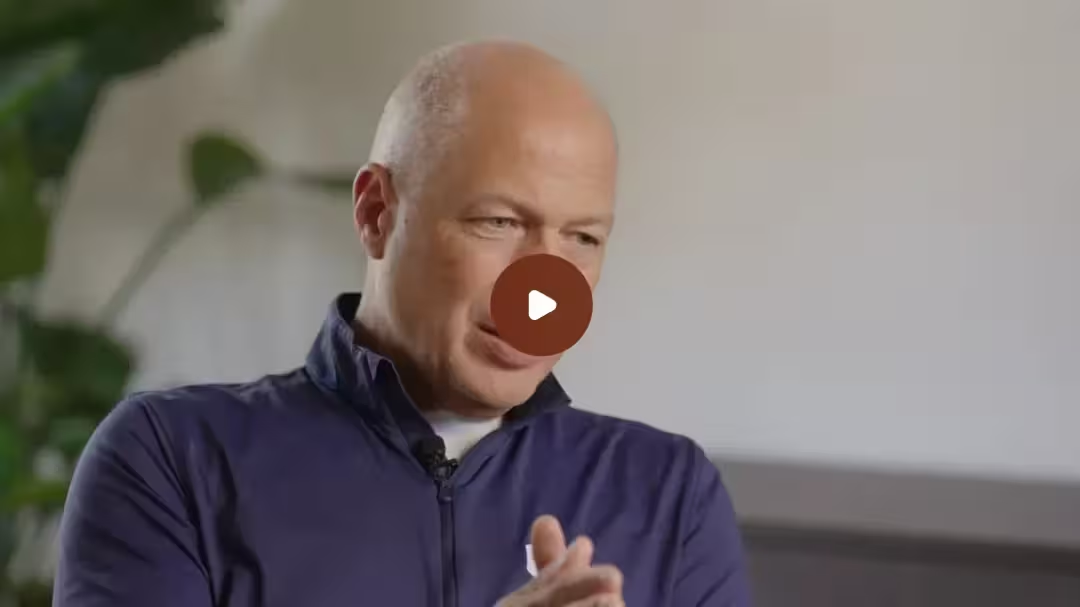
Until now, the Sales Ops Interview Series has consisted of conversations with seasoned Sales Ops veterans. This time though, I was excited to meet Nikesh, EMEA Sales Strategy Analyst at Salesforce, who's within his first two years in the profession. True to my excitement, Nikesh bounded through the door in his fresh white Nikes with a glint in his eye and the keenness to share his experiences that I was hoping for. As we donned our Wework mugs and placed ourselves in the smartly clad seating area, the interview began...
Rory Brown (RB): How did you transition into sales ops?
Nikesh Shah (NS): This is my second Sales Ops role. My first role was at Goodlord, where I started as a Business Development role at a time when growth was the company’s main focus. As part of that growth strategy, they brought in Jay Khiroya to manage the company’s sales operations and that was my first exposure to Sales Ops. I realised that I had been undertaking elements of Sales Ops in my role without calling it that. I had been building out our marketing and sales processes and when Jay joined, that’s when I realised it was an official role!
RB: What was it about watching what Jay was doing that peaked your interest in Sales Ops?
NS: Analysis, hypothesis and then building a solution. I think the building aspect was what I was most interested in. It's very satisfying creating something for the sales team or for the wider commercial strategy. In startups, sometimes processes aren't put in place right away and when the time is right, it's the role of the Sales Ops function to create them.
RB: What would be an example of a legacy problem?
NS: Inputting data incorrectly into the CRM in the early days of growing, when acquiring customers is a priority, not creating processes and structure. It’s very easy for a team to get used to an incorrect way of logging activities, creating opportunities and going through stages, which makes it a lot harder to look back and interpret the data to make future decisions. We used to create opportunities left, right and centre without really tracking the life of the opportunity but that came around to bite us when we needed reliable data to progress our strategy.
RB: How strong do you think the argument is for a company, even if they're small, to focus on process from the beginning?
NS: There’s definitely a strong argument for it. There's always a cost benefit analysis for how much time you dedicate to it however, which of course is determined by what the wider business objectives are. But if you’re gearing up for growth, before you go out and capture every prospect you possibly can, you need to ensure you have a process in place. Because a year down the line when you're heading for your second funding round or you're trying to analyse what you're going to do for the year ahead, you need that data, such as cycle times, conversions and seasonality, to be as reliable as possible, whether it's from marketing or sales.
RB: How in tune do you think Sales Ops should be with top-level company objectives?
NS: It's crucial for a couple of reasons. Firstly, the Sales Ops function will build crucial processes and suggest different strategies. Being in tune with company objectives will help to measure the impact and value of this. Secondly, any changes or suggestions put forward may affect the rest of the business. If you don’t have a commercial leader in place whose sole focus is to oversee the entire commercial operation of the business, which in relatively early stage startups you sometimes don't have the luxury of having, then Sales Ops will need to understand how changes in the sales team will impact marketing, customer success, product and the subsequent top-level objective.
RB: What would you say are the fundamentals of Sales Ops?
NS: The priorities of the role does depend on the priorities of the business at the time. But generally, there are a few fundamentals we can narrow it down to. Firstly, there’s strategy. An example of this could be focusing in on the total addressable market, gathering the data to understand the value of a new customer, knowing the ideal profile and how to target them in an efficient manner. The second point is enablement - making sure there aren't any barriers to closing a deal or prospecting. Whether it's at the top of the funnel or in the funnel, making sure the whole team has everything they need to be as good as they can be and making sure processes are working. It's also important to regularly present back metrics on an individual basis so the team and managers have visibility on things like pipeline and conversions and know what they need to do to improve. And then the final element of Sales Ops is continuous processes and improvement. This doesn't always have to exclusively be for the sales team. There could be a wider commercial initiative that Sales Ops will often be involved in.
To caveat all of that, whenever I ask someone for their definition of Sales Ops, it's always different!
RB: How would you describe the transition from being part of the sales team as a BD to moving to Sales Ops?
NS: Because I came into Sales Ops from sales rather than coming from an operations background, I understand what it’s like to be on the front line of sales, which I think is crucial and has helped me in my role. I can take a step back, put myself in the salesperson's shoes and understand the dynamics between the salesperson and sales manager.
RB: Which person in the business do you spend most time with and how do you help them?
NS: The Sales Management team.
At Goodlord, I focused on understanding our metrics at the top of the funnel and forecasting how marketing are performing in relation to the sales team. That's something I looked at frequently. I was helping the management team understand what we need from each salesperson to hit our end number and helping them understand how marketing will contribute. When you look at the sales funnel for inbound versus outbound, they paint two different pictures.
RB: Your work at Goodlord on tracking marketing efforts through the sales funnel all the way to the end sounds interesting. It would be great to get some more details on that.
NS: The tracking part of it is not that difficult to implement. One of the key things we wanted to do going into 2019 was making sure we have a close grip on all of our conversions. We use four key metrics in marketing: Marketing Qualified Leads, Sales Qualified Opportunities, Sales Accepted Opportunities and Won. We wanted to keep it simple. We focused on helping marketing create pipeline through various lead sources and one of the projects we undertook was understanding where our successful lead sources are. We discovered that for us, physical touch points such as events and direct mailers work well for us and subsequently, that’s where the marketing team are focusing their efforts in 2019.
Where we really want to make an improvement is the way in which marketing leads enter the sales process and also the way we attribute where that lead came from. Marketing and Business Development targets can sometimes clash, so it’s important to incentivise correctly.
The second thing we looked at is implementing key KPIs for the sales team and Business Development team so that we’re working smarter, not harder. We now have response times on MQLs, how many times we've contacted an MQL, followed up with them etc. We got granular with these KPIs so that everyone had visibility over their own leads, what they're working on and what they need to convert. On the topic of visibility, we’re making sure that MQLs enter the sales process in a transparent way. We wanted to give the team and managers full visibility and we’ve achieved this through process automation and notifications.
Once we did that, we slowly started to see those KPIs improve. MQL to SQO conversion has improved, as well as SQO to SAO. Why focus the sales team’s effort all on outbound when we can get smarter with inbound?
RB: Once you have that do you look at where in the opportunity cycle marketing leads are dropping out?
NS: Usually for marketing leads, if it's the latter part of the sales cycle such as a demo or further, we’ve possibly been guilty of happy ears. Whereas if we’re working on an outbound sourced lead, we're more rigorous with our qualifying. It's easy to get happy ears with inbound because you assume they're fully engaged and eager to understand your product but sometimes you have to hold back.
Want to get more insights from sales ops leaders? Check out our other posts in the sales ops interview series.
At Kluster, we're big fans of sales operations...
We recognise the growing importance of sales operations. No longer seen as the function that provides spreadsheets, sales operations is integral to building a repeatable, scalable sales machine.
That's why we built Kluster. We make analytics and forecasting systems for you so you can spend time doing what you do best: uncovering trends and delivering growth defining insights.
Kluster gives you total visibility into the effectiveness of your sales machine and helps you generate credible forecasts to revenue leaders and the board.


.svg)
.svg)
.svg)
.svg)










